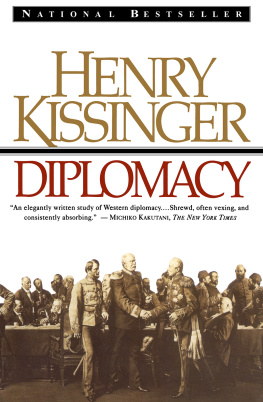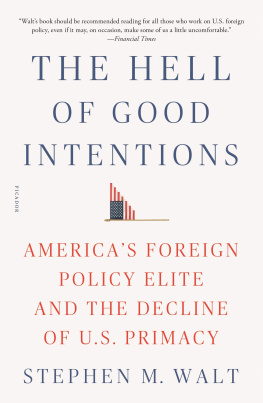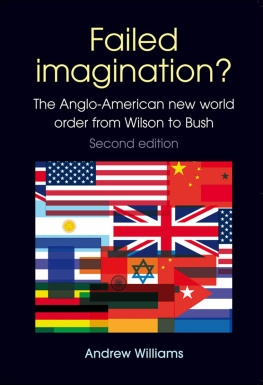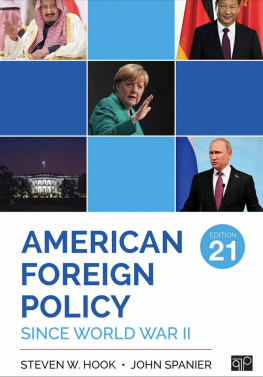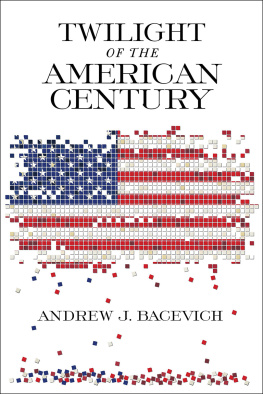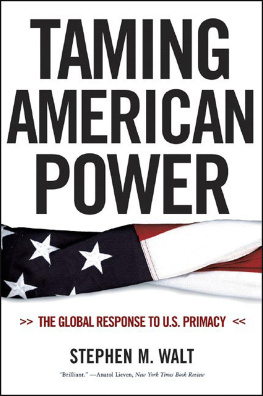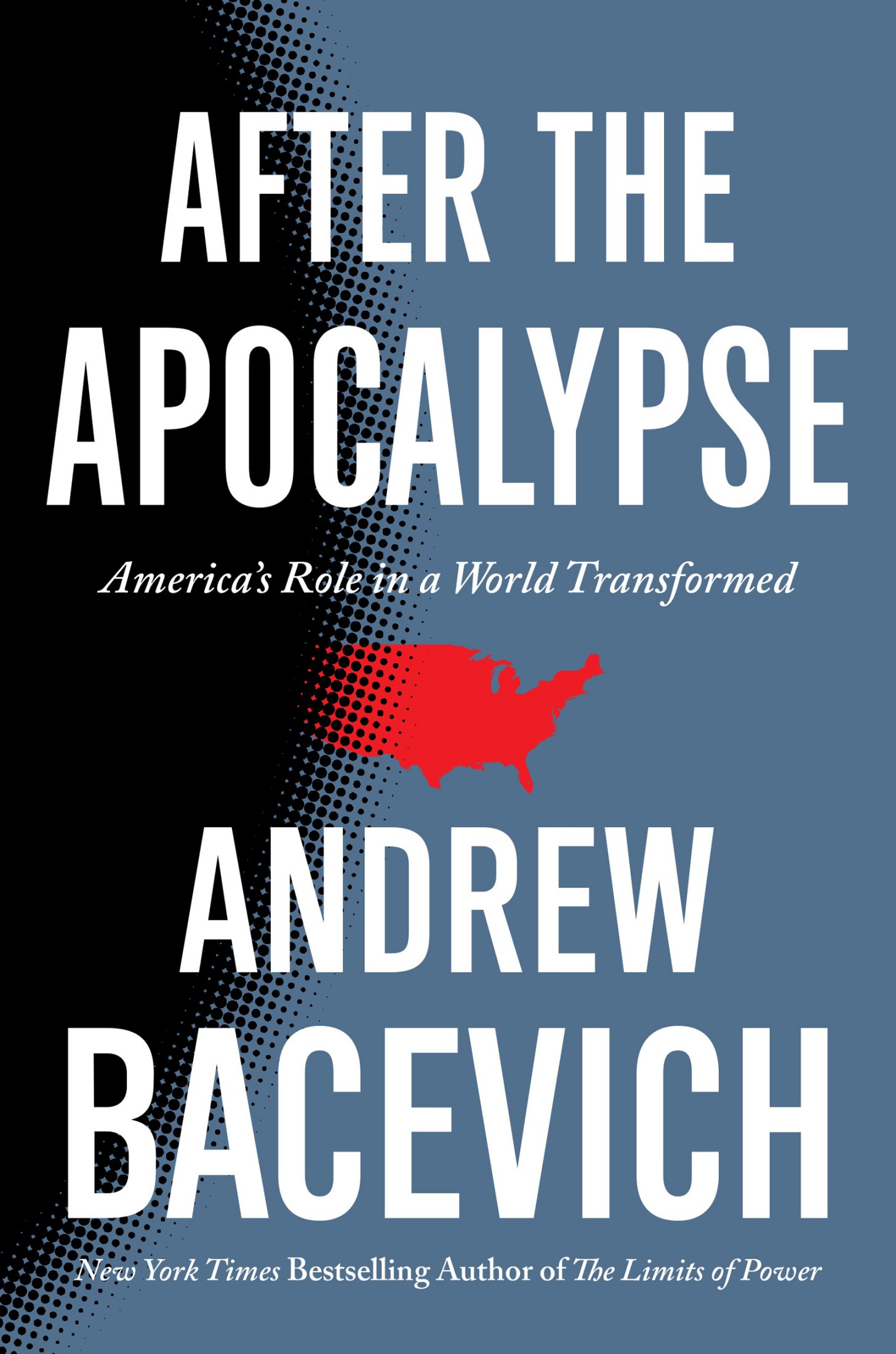The author and publisher have provided this e-book to you for your personal use only. You may not make this e-book publicly available in any way. Copyright infringement is against the law. If you believe the copy of this e-book you are reading infringes on the authors copyright, please notify the publisher at: us.macmillanusa.com/piracy.
engendered by the faulty teaching of history.
It was saturated by the smell of decay.
Between the months of July and September 1940, Marc Bloch, distinguished French historian, citizen-soldier, and future resistance fighter destined to be murdered by the Gestapo, wrote a very short book to which he gave the title Ltrange dfaite. Earlier that spring, the German Wehrmacht had attacked France. The army in which Bloch was then serving as an over-aged staff captain disintegrated. That disintegration was the subject of Blochs book.
For citizens of France, this disaster came as a profound shock. It just wasnt supposed to happen. France had long ranked among the worlds great powers and possessed a proud military tradition. Just two decades earlier, in what was then historys costliest war, the French army prevailed over the German invader. Now, that same army collapsed in a matter of a few weeks. Ltrange dfaite was a soldier-historians effort to understand the roots of that catastrophe.
Published after the war in French and subsequently in English as Strange Defeat, Blochs account became an instant classic. Written in what he admitted was a white heat of rage, his slight monograph was not an expression of dispassionate scholarship. It was instead an indictment of those who had laid France open to defeat, occupation, and humiliation.
The primary explanation, he charged, was the utter incompetence of the High Command, both military and civilian. Defeat stemmed directly from a failure of leadership.
My purpose in writing After the Apocalypse compares with Blochs. In books and essays published over the past twenty years, I have called attention to various failures of American leadership, particularly related to this countrys recurring misuse of military power.
In 2020, those failures came home to roost. The disaster befalling the United States that year differed from the one suffered by France eighty years earlier. Yet the ultimate explanation was similar: incompetence at the highest levels, compounded by hubris, negligence, and an inability to learn.
Like Bloch, I make no pretense of dispassion. The matters I discuss are still too close at hand and urgent to permit dispassion.
The generation to which I belong has a bad conscience, Bloch wrote in Strange Defeat. With some honorable exceptions, the generation of Americans to which I belong has traded its conscience for a mess of pottage.
So I offer this book not for my own contemporaries but for those who will inherit the muddle we have made. I hope they may benefit from this reflection on what happens when decay is left unattended.
Walpole, Massachusetts
October 2020
During the summer of 2020, as I was writing this book, nervous Americans sensed the onset of a terrifying Apocalypse. Wildfires scorching vast areas of California, Oregon, and Washington and hurricanes pummeling the Gulf Coast reinforced those terrors. Fears that events were literally taking an apocalyptic turn became explicit and widespread. Editors inserted the term itself into headlines. THE APOCALYPSE FEELS NIGH. By implication, that you could be anyone anywhere.
Fires and floods were only the latest in a succession of punishments Americans were obliged to endure. First had come the toxic and divisive presidency of Donald Trump. Then in the spring of 2020, a deadly pandemic engulfed the nation, nearly bringing it to its knees. Trailing just steps behind came an economic collapse so severe as to elicit comparisons with the Great Depression of the 1930s. Before Americans had fully absorbed these disruptions, a mass movement demanding a reckoning with the nations legacy of racism erupted, unleashing, in turn, a white nationalist backlash.
Rancor, pestilence, want, and fury: These are the Four Horsemen comprising our own homemade Apocalypse. Each came as a shock to the system. Each exposed weakness and rot in institutions whose integrity Americans had long taken for granted. Each caught members of the nations reigning power elite by surprise.
Trumps ascent to the White House exposed gaping flaws in the American political system, his manifest contempt for the Constitution and the rule of law placing in jeopardy our democratic traditions. The coronavirus pandemic exposed gaping flaws in the prevailing concept of national security, with Americans exposed to life-threatening perils to which government authorities responded tardily and ineffectually. In a matter of weeks, the economic crisis it induced threw tens of millions out of work and drove millions of businesses into bankruptcy. As for the popular uprising known as Black Lives Matter, it exposed deep-seated and widespread residual opposition to genuine racial equality.
The calamities that accumulated during 2020 fostered a sense of things coming undone. The political order seemed unable to cope. Crises following one another in rapid succession tested Americans as they had not been tested for generations. Each crisis compounded the significance of the others. Taken together, they gave birth to a moment of profound and disturbing revelation.
What this revelation will ultimately signify remains to be seen. Perhaps post-Apocalypse America will experience a great revival, comparable to what occurred in the 1860s, when a radical realignment of national politics accelerated the nations emergence as the worlds wealthiest country, albeit only after the fiery trial of civil war. Or perhaps, as it emerges from its present trials, the United States will suffer the fate of the Third French Republic in the 1930s. Sustained political dysfunction combined with a dismally inadequate response to external danger spelled the end of Frances standing among the great powers.
The premise of this book is quite simple: Regardless of whether our self-inflicted contemporary apocalypse leads to renewal or further decline, the United States will find itself obliged to revise the premises informing Americas role in the world. Put simply, basic U.S. policy must change.
Even before COVID-19 swept the nation, taking hundreds of thousands of American lives, cumulative policy failures ought to have made it clear that a national security paradigm centered on military supremacy, global power projection, decades-old formal alliances, and wars that never seemed to end was at best obsolete, if not itself a principal source of self-inflicted wounds. The costs, approximating a trillion dollars annually, were too high. The outcomes, ranging from disappointing to abysmal, have come nowhere near to making good on promises issued from the White House, the State Department, or the Pentagon and repeated in the echo chamber of the establishment media.
Through its own fecklessness during the 1920s and 1930s, the government of France laid the foundation for its 1940 defeat by Nazi Germany. Similarly, the fecklessness of U.S. policy during the two decades after 9/11 paved the way for the afflictions of 2020.


